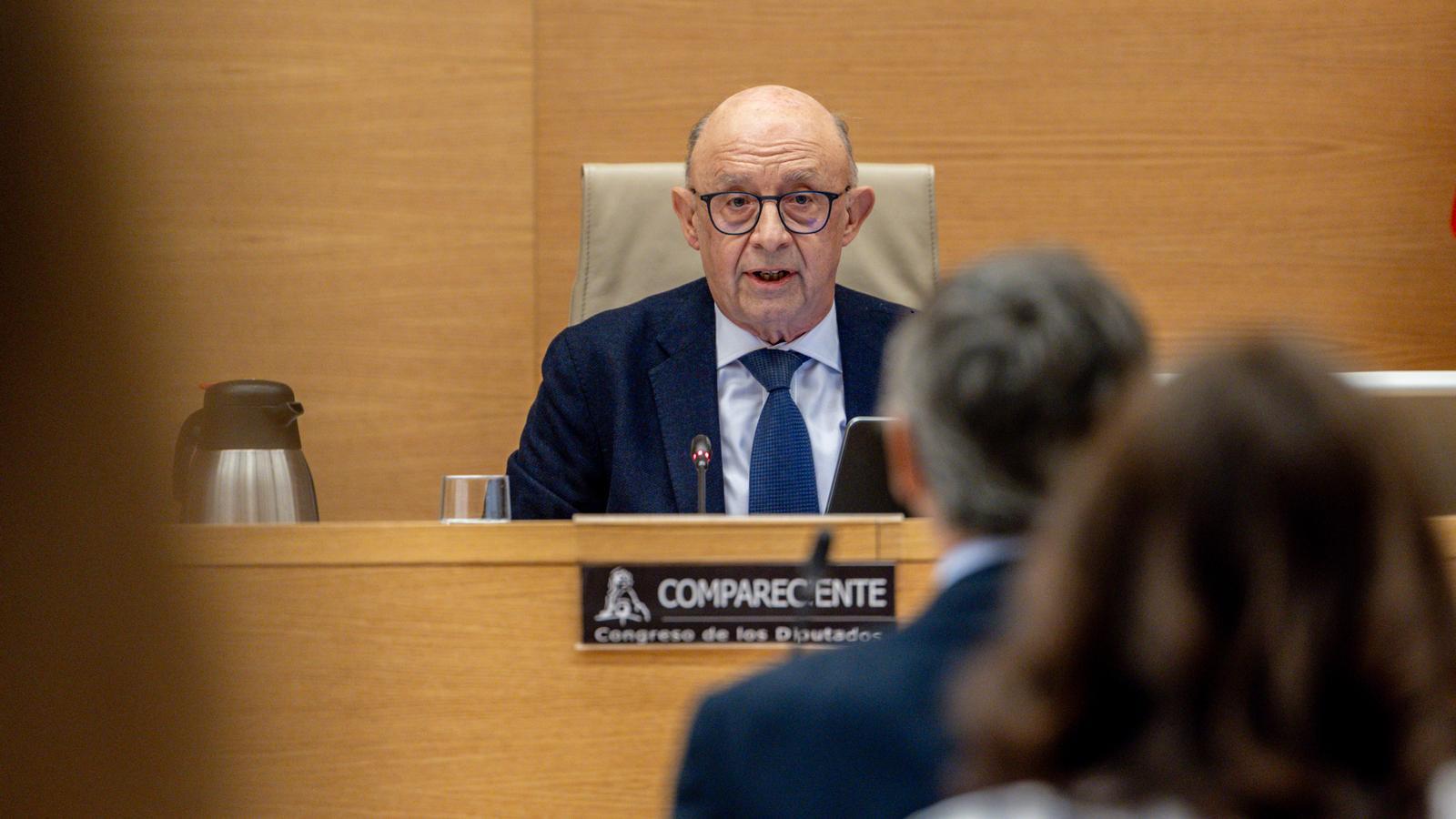BarcelonaIt all began with a local investigation by a Tarragona court into a gas company for a land use planning offense. However, after extensive investigative work by Mossos d'Esquadra specialists, the investigation has finally revealed a case. the well-known Montoro case, an alleged corruption scheme involving the former minister and some of the top brass of the then Treasury Ministry. The separate case file for this case was opened in 2018, and after numerous extensions and more than 5,000 pages of indictment, the investigation is still at a crucial point: the bank accounts and credit cards of those involved are being analyzed, a key part of proving whether the senior ministry official was personally enriched and influenced by obtaining tax benefits for private companies.
Although the bulk of the investigation has been carried out by the Mossos d'Esquadra (Catalan police), the investigating magistrate in Tarragona decided to hand over the proceedings to the Civil Guard to achieve "maximum effectiveness and efficiency." One of the parts he was assigned to within the Central Operative Unit (UCO) of the Spanish police was the analysis of all the bank accounts and credit cards of those under investigation. However, this task has earned him more than one rebuke from the prosecutor handling the case, the judiciary, and the Tax Agency (AEAT) itself for not sharing the progress of the investigation or treating it as a priority matter, according to the summary to which ARA has had access. Things got to the point that the Prosecutor's Office complained on more than one occasion about the slowness of the Spanish police.
Throughout the judicial investigation, the Tax Agency's Prosecutor's Support Unit has been sending the police the necessary reports on the banking information of some of those involved. In May 2019, for example, they already provided the financial ties of the main partners of Equipo Económico at the request of the Mossos d'Esquadra (Catalan police). In February 2022, the Tax Agency received a new request for information, this time from the Civil Guard. However, the AEAT (Spanish Tax Agency) expressed surprise that the Spanish police had not asked for information about the banking operations of Montoro, his brother, or former minister Luis de Guindos, among other senior officials.
They finally received this request from the Civil Guard later. However, the Tax Agency's complaints do not end there: they criticize in their report that they have not received additional information on the status of the investigation since 2020 and warn that, if the proceedings are at the same point, evidence that goes beyond the tax returns would be needed, since otherwise they would not reach the screens. After leaving this complaint in writing, the AEAT proceeds to collect banking information, now, from Montoro and his closest associates. They had previously encountered difficulties accessing the emails of those involved and saw that some content was blocked.
The Prosecutor's Office's Wait
This additional information requested by the Tax Agency could have been obtained with the bank account information of those involved. The investigating judge received no feedback from the Civil Guard regarding the bank accounts. The card information was one of the compelling reasons—and the Public Prosecutor's Office has made this clear in several rulings—for prolonging the investigation. The investigation continued without any feedback. During these months, the Civil Guard had requested some corrections from the judge because it had requested accounts from banks that ultimately were not its own. 18 to arrive. "However, the Civil Guard also reported that they have not initiated the traceability study" of the accounts, the Prosecutor's Office lamented. A month later, in July 2024, the court clerk had to send another letter to the Civil Guard requesting that they deliver the bank account deletions "as soon as possible." The lack of transparency for which they also received complaints.
Aguirre asks Rajoy to explain the Montoro case.
Former Madrid Prime Minister Esperanza Aguirre believes Mariano Rajoy should explain "why several ministers went to see him to tell him what Montoro was doing and it seems he didn't give them credibility," she told RAC1, where she disassociated Alberto Núñez Feijóo from the case. The PP leader has also spoken out on the matter and, in an interview with La Voz de Galicia , asserted that he maintains a relationship with Alberto Nadal, the former minister who is part of Feijóo's economic team and who was Secretary of State under Montoro.
In any case, Aguirre celebrated the fact that the justice system is investigating the former Minister of Finance: "I'm very happy." The former PP leader recalled that four days before the 2015 municipal elections—she was leading the PP's list in Madrid City Council—her 2013 tax return was leaked, which she believes cost her victory in the election. Aguirre suspects it was Montoro's work, as he didn't pick up the phone when she called. According to Aguirre, "it was a fairly widespread rumor" that the law firm Equipo Económico (EE), founded by Montoro, "had influence over people who had problems with the Treasury."

